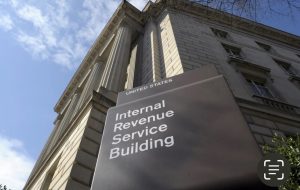The Internal Revenue Service (IRS) continues its efforts to expand enforcement related to high-income individuals, large corporations, and complex partnerships, as part of a broader transformation. IRS Commissioner Danny Werfel highlighted the progress made under the Inflation Reduction Act, with a focus on improving taxpayer service and strengthening enforcement.
The IRS is actively pursuing individuals using partnerships to evade self-employment taxes and provided new details on its enforcement priorities. Notably, the agency is targeting millionaires who have outstanding tax debts, collecting an additional $360 million on top of the $122 million reported earlier. The total collected in ongoing efforts to recoup taxes from 1,600 millionaires now stands at $482 million.
Werfel emphasized the IRS’s commitment to scrutinizing high-income taxpayers, aiming to reverse historically low audit rates and limited focus on the wealthiest individuals. The agency is allocating resources to ensure compliance among partnerships, large corporations, and high-income individuals.
In a quarterly update on the IRS Strategic Operating Plan, Werfel outlined key initiatives:
The IRS is intensifying efforts to pursue high-income individuals with over $1 million in income and $250,000 in recognized tax debt. Revenue officers are focusing on these cases, resulting in the collection of $38 million from 175 high-income earners. The IRS is actively addressing tax debts owed by 1,600 millionaires, with over $520 million recovered.
The IRS identified discrepancies in balance sheets involving partnerships with over $10 million in assets, indicating potential non-compliance. An initiative was launched to address these discrepancies, with 480 compliance alerts sent as of the end of October.
Leveraging Artificial Intelligence (AI), the IRS is conducting audits of the 76 largest partnerships in the U.S., utilizing machine learning technology to identify compliance risks. These partnerships, with over $10 billion in assets each, represent various industries, including hedge funds, real estate investment partnerships, and large law firms.
The IRS is increasing compliance efforts on U.S. subsidiaries of foreign companies distributing goods in the U.S. Compliance alerts have been sent to over 180 subsidiaries to reinforce U.S. tax obligations.
The Large Business & International Division is expanding the Large Corporate Compliance program, initiating 60 additional audits of the largest corporate taxpayers using a combination of AI and subject matter expertise.
The IRS is focusing on compliance with Self-Employment Contributions Act (SECA) taxes for wealthy individual partners in partnerships. Over 80 audits have been conducted, and a November 2023 Tax Court opinion affirmed the IRS’s position on SECA tax for partners actively participating in state law limited partnerships.
As the IRS intensifies its efforts, Werfel reiterated the commitment to improving taxpayer service and modernizing technology infrastructure to ensure a successful 2024 tax season.
The IRS offered positions to more than 560 new skilled accountants in November and December, key positions in ramping up work to pursue high-wealth individuals, complex partnerships and large corporations that do not pay taxes owed. Importantly, the IRS has been modernizing its hiring processes and holding more direct hiring events to better compete with the private sector and quickly bring top talent on board.






